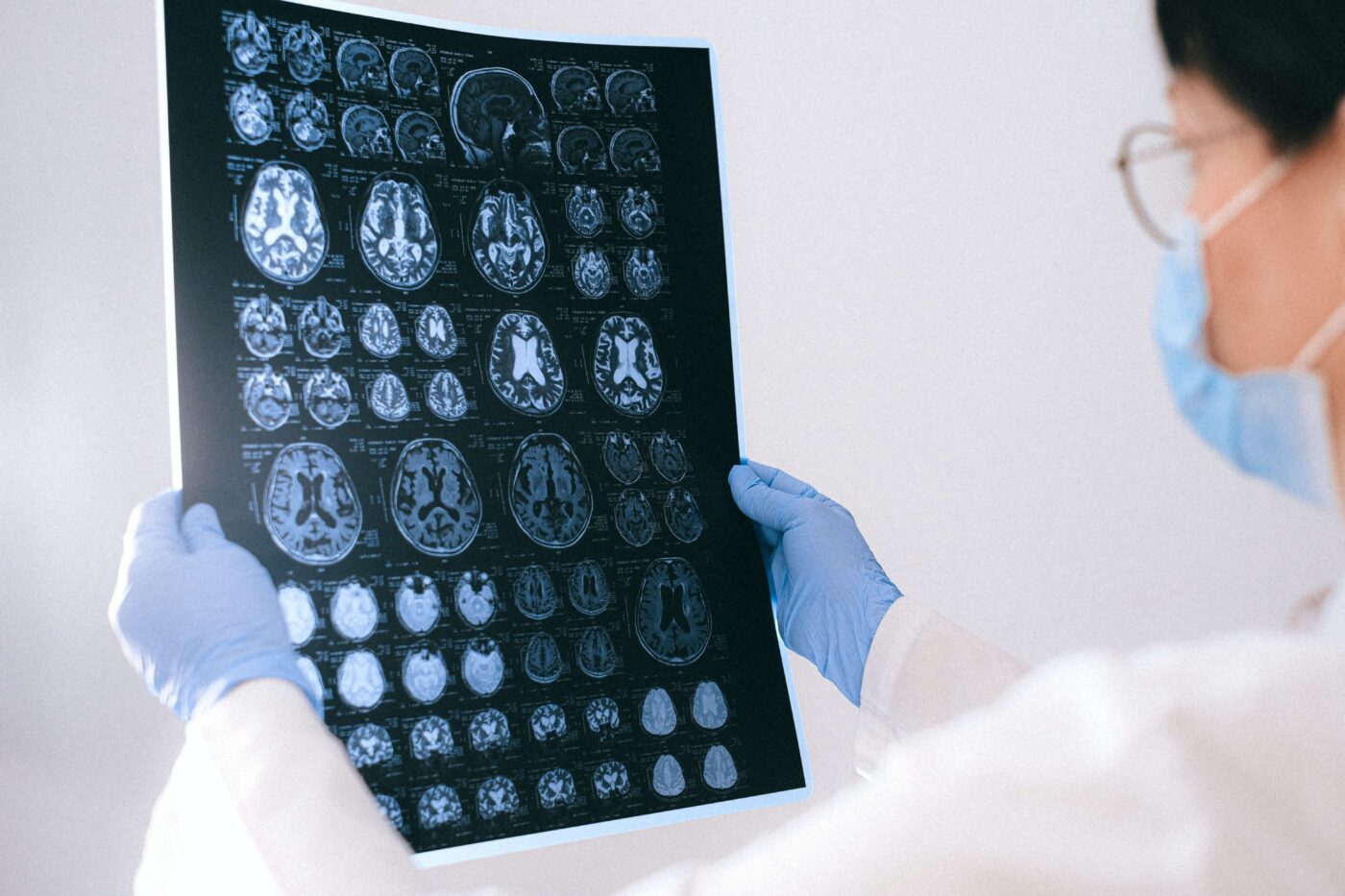ARIA, or Amyloid-Related Imaging Abnormalities, is a recognised side-effect of lecanemab (Lequembi™) and donanemab and other medications in the same class. These medications are monoclonal antibodies (MABs) against abnormally elevated toxic amyloid protein in the brain; a hallmark of Alzheimer’s disease. MABs remove this toxic amyloid protein from the brain and thereby slow progression of the disease and its symptoms. Leqembi™ is the first of such treatments to have been approved, in August 2024, by MHRA; having been demonstrated in international clinical trials to successfully remove amyloid protein and simultaneously slow progression the symptoms of Alzheimer’s disease.
However, ARIA can present a risk to individuals taking a MAB medication, which requires careful management.
ARIA manifests in two forms: ARIA-E (edema) and ARIA-H (haemorrhage). ARIA can occur naturally in Alzheimer’s disease, but may be exacerbated by taking a MAB medication; occurring in about 35% of people taking a MAB. However, only about 3.5% of these individuals will experience any untoward symptoms of ARIA. For this reason an MRI brain scans are required in all individuals taking this class of medication in order to detect the presence of ARIA. (Hence its terminology Amyoid Related IMAGING Abnormality).
ARIA-E refers to swelling in the brain, which can lead to cognitive symptoms or worsen existing ones. ARIA-H refers to micro-hemorrhages or hemosiderin deposits, which are small blood leaks in the brain that might not immediately cause symptoms but can contribute to cognitive decline over time.
Risk Factors for ARIA:
Whilst ARIA may occur in any individuals talking MABs, there are a few factors which an confer an increased risk. These include taking certain blood thinner medications, the presence of more than four micro-haemorrhages on brain MRI scan, prior to starting a MAB; pre-existing brain lesions including advanced cerebrovascular disease (also demonstrated on MRI). And, the presence of the APOE 4/4 genotype.
MHRA has stipulated, for safety reasons, that individuals with these risk factors are not eligible for Leqembi™ even though the medication is now licensed in the UK.
Symptoms and Detection:
Symptoms of ARIA can vary widely. As above ARIA-E is usually causes no symptoms, but may cause headache, confusion or nausea, while ARIA-H may also be asymptomatic or present as subtle changes in cognitive function or headache. Because these symptoms can overlap with the effects of Alzheimer’s itself, or be mistaken for other conditions, accurate and timely detection by MRI scanning is crucial.
Dr Emer MacSweeney, the CEO, Medical Director at ReCognition Health, is also a Consultant Neuroradiologist and alongside their team of cognitive specialists is adept at identifying ARIA early and tailoring treatment strategies to each patient’s unique needs.
LISTEN TO DR MACSWEENEY EXPLAIN ARIA HERE
The Importance of MRI Monitoring:
Monitoring for ARIA involves regular MRI scans, which are essential for identifying these abnormalities, early. MRI scans can reveal changes in brain structure that may not be apparent through other diagnostic methods. Judicial use MRI imaging enables clinicians assess whether ARIA is developing and evaluate its potential impact on the patient’s treatment and condition. Action to mitigate progression of ARIA may require interrupting treatment, which in the vast majority of cases can then be re-started as soon as MRI scanning demonstrates ARIA E has resolved, and ARIA H has stabilised. Very occasionally, when ARIA is severe the treatment must be stopped, permanently and the individual is advised not to take medications in this class (MAB to amyloid) in the future.
Re:Cognition Health: Expertise in Managing ARIA
At Re:Cognition Health, the management of ARIA is a key focus. Our teams have given over 9000 doses of this type of medication for Alzheimer’s disease and have vast expertise in utilising advanced imaging technologies and interpreting MRI results, to ensure safe management of our patients. Dr Emer MacSweeney, the CEO, Medical Director at ReCognition Health, is also a Consultant Neuroradiologist and alongside her team of cognitive specialists is adept at identifying ARIA early and tailoring treatment strategies to each patient’s unique needs.
The clinic’s approach includes not only routine MRI monitoring but also a personalised management plan that considers the patient’s overall health, risk factors and response to treatment. By staying ahead of potential complications and addressing them promptly, Re:Cognition Health’s experts are dedicated to maximising the benefits of new Alzheimer’s therapies while minimising risks.
 Visit our USA website
Visit our USA website





